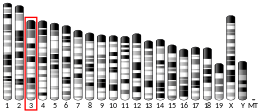Ubiquilin 4
Ubiquilin 4 is a protein in humans that is encoded by the UBQLN4 gene.[5][6][7] Ubiquilin 4 regulates proteasomal protein degradation.[8]
Similarity to Other Proteins
Human UBQLN4 shares a high degree of similarity with related ubiquilins including UBQLN1 and UBQLN2.[9]
gollark: <@148221133332807681> Have you heard of Linux?
gollark: Support for `b` has been added.
gollark: Hold on, that will be patched in v6.12468.
gollark: - All this useless random junk can autoupdate (this is probably a backdoor)!- EZCopy allows you to easily install potatOS on another device, just by sticking it in the disk drive of any potatOS device!- fs.load and fs.dump - probably helpful somehow.- Blocks bad programs (like the "Webicity" browser).- Fully-featured process manager.- Can run in "hidden mode" where it's at least not obvious at a glance that potatOS is installed.- Convenient, simple uninstall with the "uninstall" command.- Turns on any networked potatOS computers!- Edits connected signs to use as ad displays.- A recycle bin.- An exorcise command, which is like delete but better.- Support for a wide variety of Lorem Ipsum.
gollark: Best viewed in Internet Explorer 6.00000000000004 running on a Difference Engine emulated under MacOS 7 on a Pentium 3. Features:- Fortunes/Dwarf Fortress output/Chuck Norris jokes on boot (wait, IS this a feature?)- (other) viruses (how do you get them in the first place? running random files like this?) cannot do anything particularly awful to your computer - uninterceptable (except by crashing the keyboard shortcut daemon, I guess) keyboard shortcuts allow easy wiping of the non-potatOS data so you can get back to whatever nonsense you do fast- Skynet (rednet-ish stuff over websocket to my server) and Lolcrypt (encoding data as lols and punctuation) built in for easy access!- Convenient OS-y APIs - add keyboard shortcuts, spawn background processes & do "multithreading"-ish stuff.- Great features for other idio- OS designers, like passwords and fake loading (est potatOS.stupidity.loading [time], est potatOS.stupidity.password [password]).- Digits of Tau available via a convenient command ("tau")- Potatoplex and Loading built in ("potatoplex"/"loading") (potatoplex has many undocumented options)!- Stack traces (yes, I did steal them from MBS)- Backdoors- er, remote debugging access (it's secured, via ECC signing on disks and websocket-only access requiring a key for the other one)
References
- GRCh38: Ensembl release 89: ENSG00000160803 - Ensembl, May 2017
- GRCm38: Ensembl release 89: ENSMUSG00000008604 - Ensembl, May 2017
- "Human PubMed Reference:". National Center for Biotechnology Information, U.S. National Library of Medicine.
- "Mouse PubMed Reference:". National Center for Biotechnology Information, U.S. National Library of Medicine.
- "Entrez Gene: Ubiquilin 4". Retrieved 2013-06-27.
- Davidson JD, Riley B, Burright EN, Duvick LA, Zoghbi HY, Orr HT (September 2000). "Identification and characterization of an ataxin-1-interacting protein: A1Up, a ubiquitin-like nuclear protein". Hum. Mol. Genet. 9 (15): 2305–12. doi:10.1093/oxfordjournals.hmg.a018922. PMID 11001934.
- Matsuda M, Koide T, Yorihuzi T, Hosokawa N, Nagata K (January 2001). "Molecular cloning of a novel ubiquitin-like protein, UBIN, that binds to ER targeting signal sequences". Biochem. Biophys. Res. Commun. 280 (2): 535–40. doi:10.1006/bbrc.2000.4149. PMID 11162551.
- Riley BE, Xu Y, Zoghbi HY, Orr HT (October 2004). "The effects of the polyglutamine repeat protein ataxin-1 on the UbL-UBA protein A1Up". J. Biol. Chem. 279 (40): 42290–301. doi:10.1074/jbc.M406284200. PMID 15280365.
- Marín I (March 2014). "The ubiquilin gene family: evolutionary patterns and functional insights". BMC Evol Biol. 14: 63. doi:10.1186/1471-2148-14-63. PMC 4230246. PMID 24674348.
External links
- UBQLN4 protein, human at the US National Library of Medicine Medical Subject Headings (MeSH)
This article is issued from Wikipedia. The text is licensed under Creative Commons - Attribution - Sharealike. Additional terms may apply for the media files.



